Open This Publication
Abstract in English:
Digital communication technologies, an increase in flexible employment-relationships and a growing demand for creative knowledge work are causing fundamental changes in the world of work. As the shift towards mobility and independence is continuing to blur the boundaries between leisure and work, new challenges arise for individuals as well as for society as a whole. As the ways in which we live and work are changing, so do the ways in which we travel and spend our holidays. The ongoing transformations are having a great influence on tourism, leisure and the hospitality industry. This exploratory thesis investigates coworking, a phenomenon built on the needs of a growing number of freelancers and other remote working professionals, from a tourism perspective. A variety of coworkation concepts, combining elements of tourism with aspects of coworking are introduced. Based on the concept of strategic visitor flows (SVFs), as presented by Beritelli, Reinhold, Laesser, and Bieger, (2015) an empirical study on people already making use of these innovative concepts is conceptualised. By means of an online survey the needs, motives, and behaviours of the location independent professionals combining work and travel with the help of a coworkation concept are investigated. Evaluating the results from the survey reveals a multitude of insights into who they are (demographics), what drives them (motives) and how they behave (tripographics) on their coworkation trips. This information provides the basis for further research into this emerging field. It also enables tourism service providers and destinations to spot potential latent flows of coworkationists, analyse them more closely, and assess their potential. Some suggestions for areas in which coworkation concept providers and destinations could cooperate and profit from each other are made.
Open Access? Yes
Publication Year 2016
